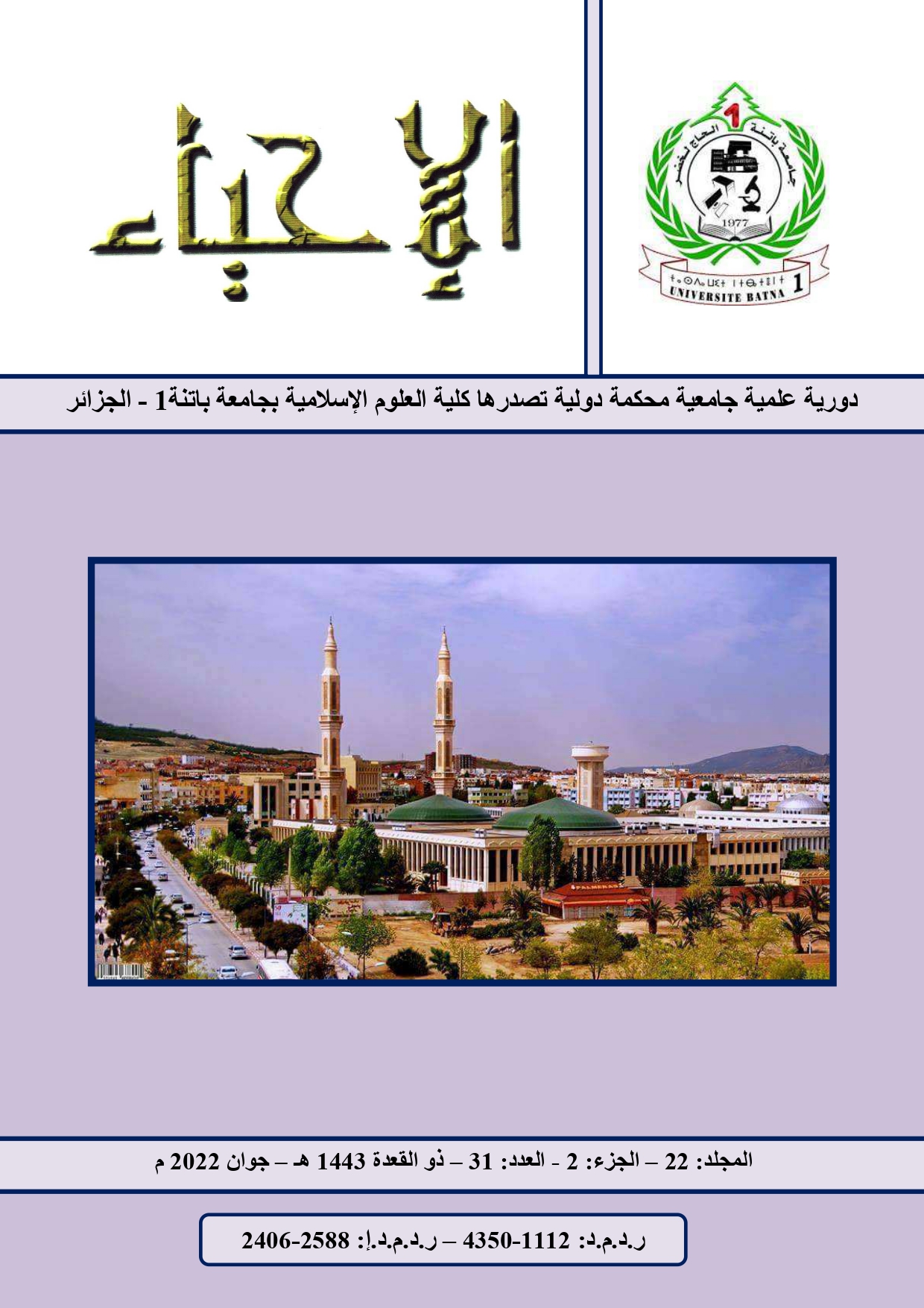Work Done In The Middle Maghreb And Its Impact On The Fatwas Of Malikite Scholars -Urban Issues As A Model-
DOI:
https://doi.org/10.59791/ihy.v22i2.1225Keywords:
the workdone by the judges, middle Maghreb, urbanizationAbstract
This research deals with the workdone by the judges and the muftis of the central Maghreb (middle Maghreb), and its outstanding (prominent) effect on the fatwas of scholars in this geographic area, especially concerning urbanisation issues, such as buildings, water, markets, ovens, graveyards, and others, which are based on conciliatory consideration, such as interests, consideration of customs, and blocking pretexts... and more.
The research comes in the context of responding, using emerging evidence and irrefutable arguments, against the claim that there is no work in the Middle Maghreb, which was claimed by some law professors in France and Spain and was recognized by some researchers in the Far Maghreb(western Maghreb). It contained a fundamental study of this origin as a concept, conditions, and a position for the scholars of the Middle Maghreb, accompanied by an applied study that demonstrates the consideration of this origin as a fatwa and judgment in this country, especially in urbanization issues that builds its rulings on beneficial meanings and jurisprudential perceptions.
Downloads
Published
How to Cite
Issue
Section
License

This work is licensed under a Creative Commons Attribution-NonCommercial-NoDerivatives 4.0 International License.






